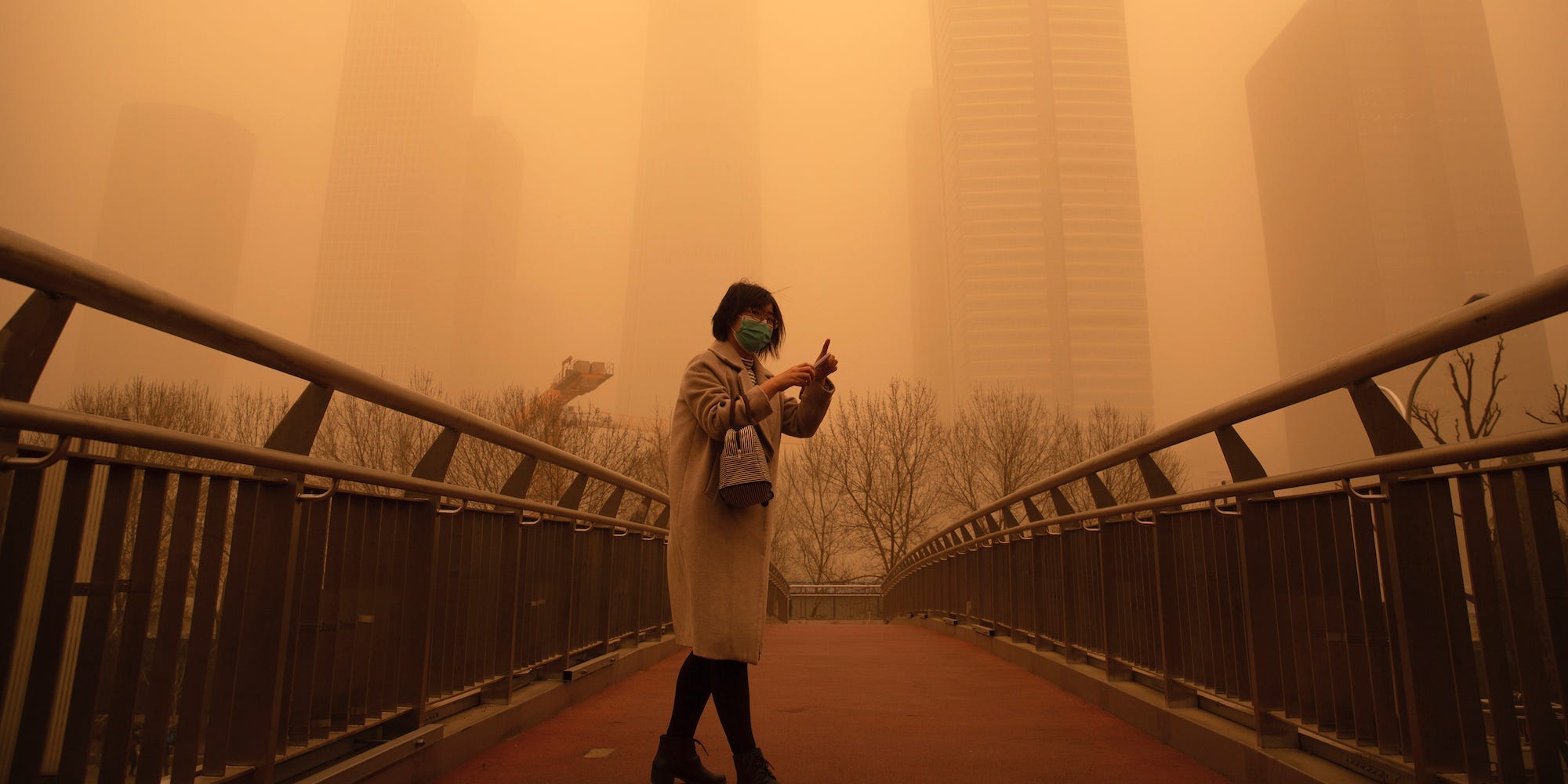
AP Photo/Mark Schiefelbein
- Photos show Beijing glowing yellow as the city is hit by a huge sandstorm.
- The China Meteorological Administration called it the biggest sandstorm in a decade.
- Air pollution levels are dangerously high and many flights have been canceled.
- See more stories on Insider's business page.
The Chinese capital of Beijing was covered in yellow haze on Monday as it was blanketed in a huge sandstorm that caused widespread disruption and spiking air pollution levels.
Photos showed the city glowing yellow and buildings obscured as winds blew sand into the city:
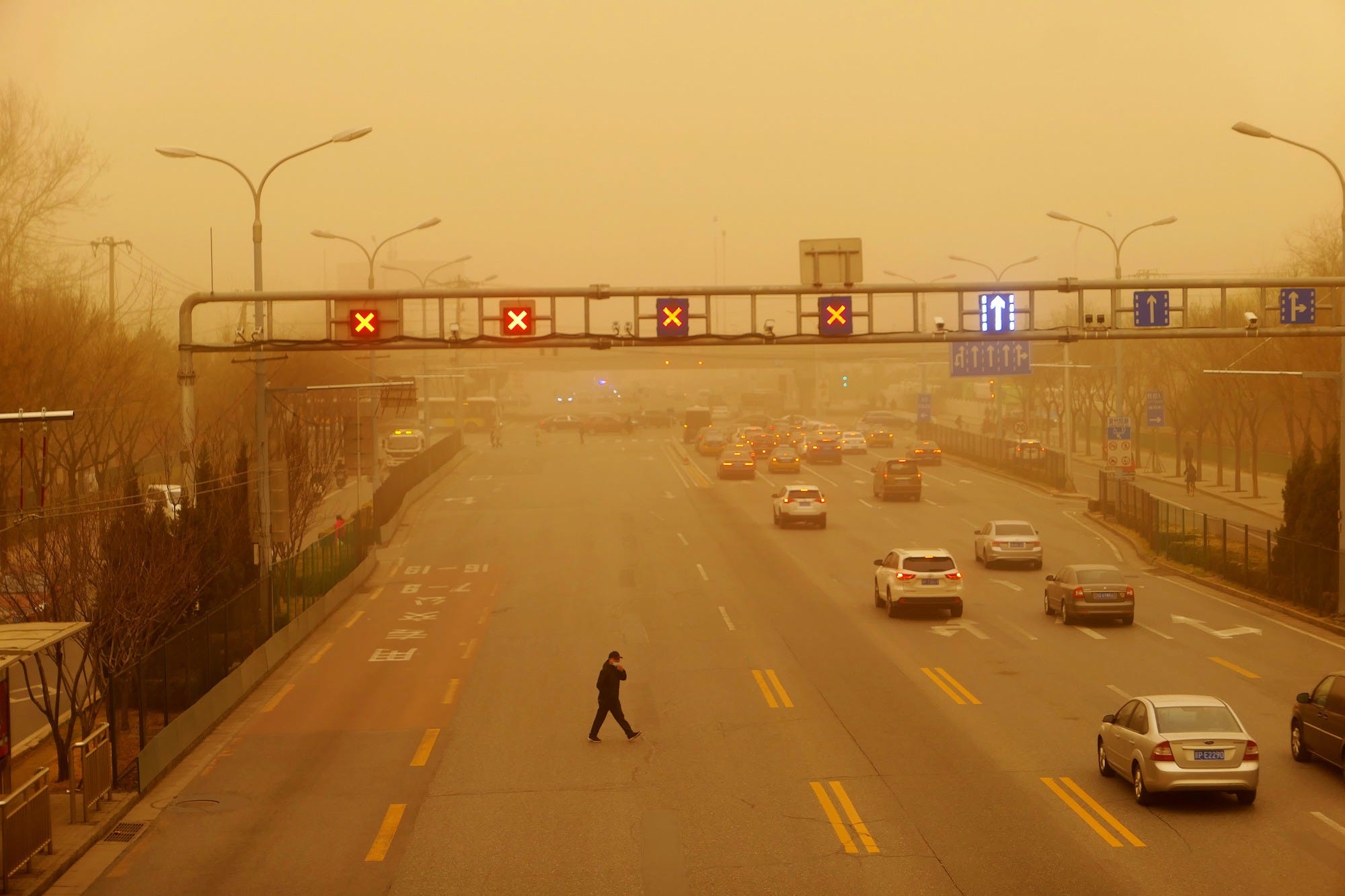
Costfoto/Barcroft Media via Getty Images
The China Meteorological Administration said on Monday that sandstorms had reached provinces across northern China, including Hebei – the province that surrounds Beijing – after they already hit Inner Mongolia.
The sand is being blown in from the Gobi desert in Inner Mongolia, Reuters reported.
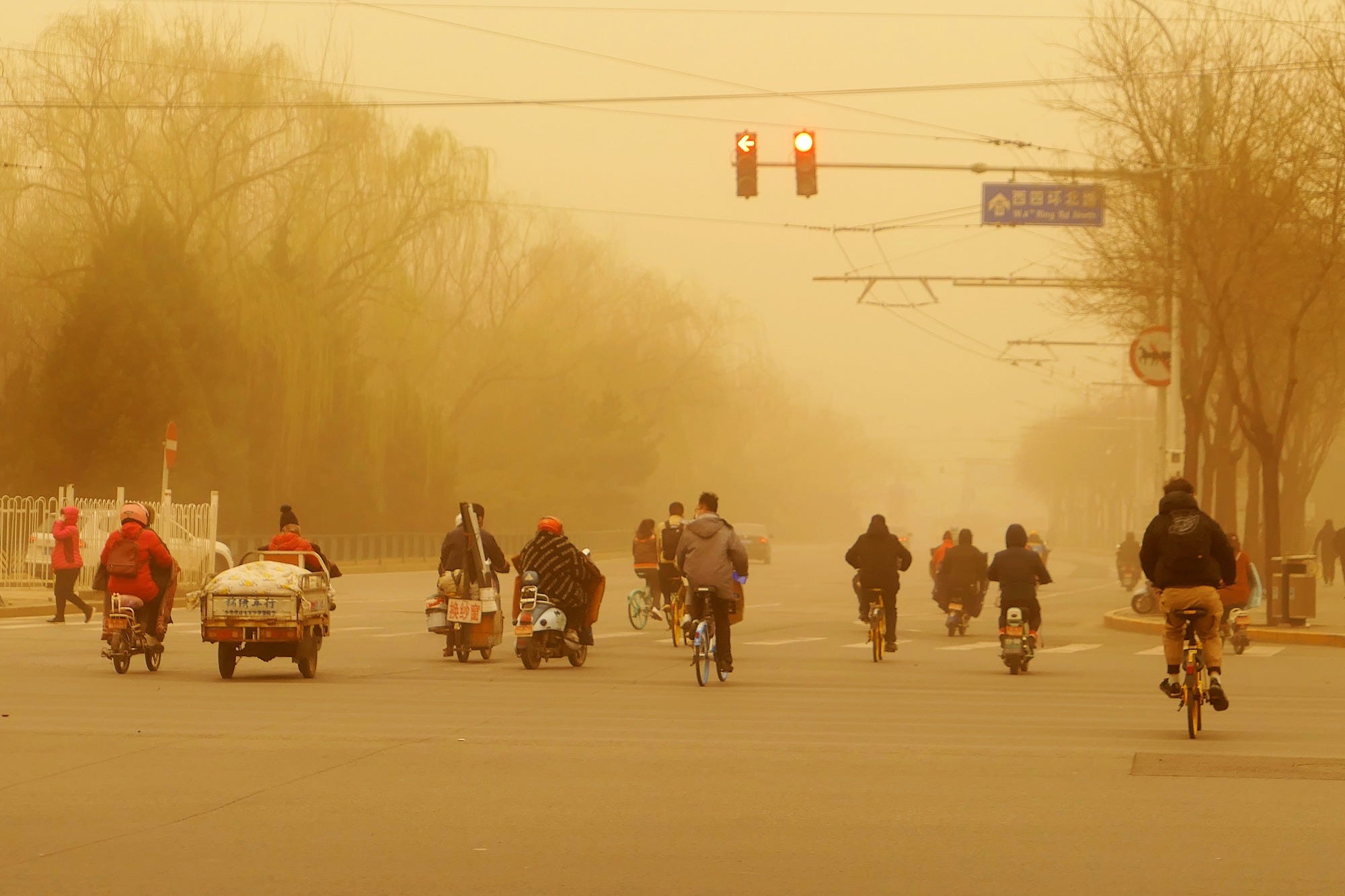
Costfoto/Barcroft Media via Getty Images
The Air Quality Index gave the city a "hazardous" 999 rating on Monday, which means "everyone may experience more serious health effects" and that "everyone should avoid all outdoor exertion."
In comparison, Tokyo, Japan, was given a "good" rating of 42, London, England, was given a "good" rating of 30, and Manhattan, New York, was given a "moderate" rating of 51.
Some flights in and out of Beijing have also been grounded as a result of the sandstorm: Around a fifth of flights coming and going from Beijing Capital International Airport and Beijing Daxing International Airport were cancelled as of midday on Monday, Reuters reported.
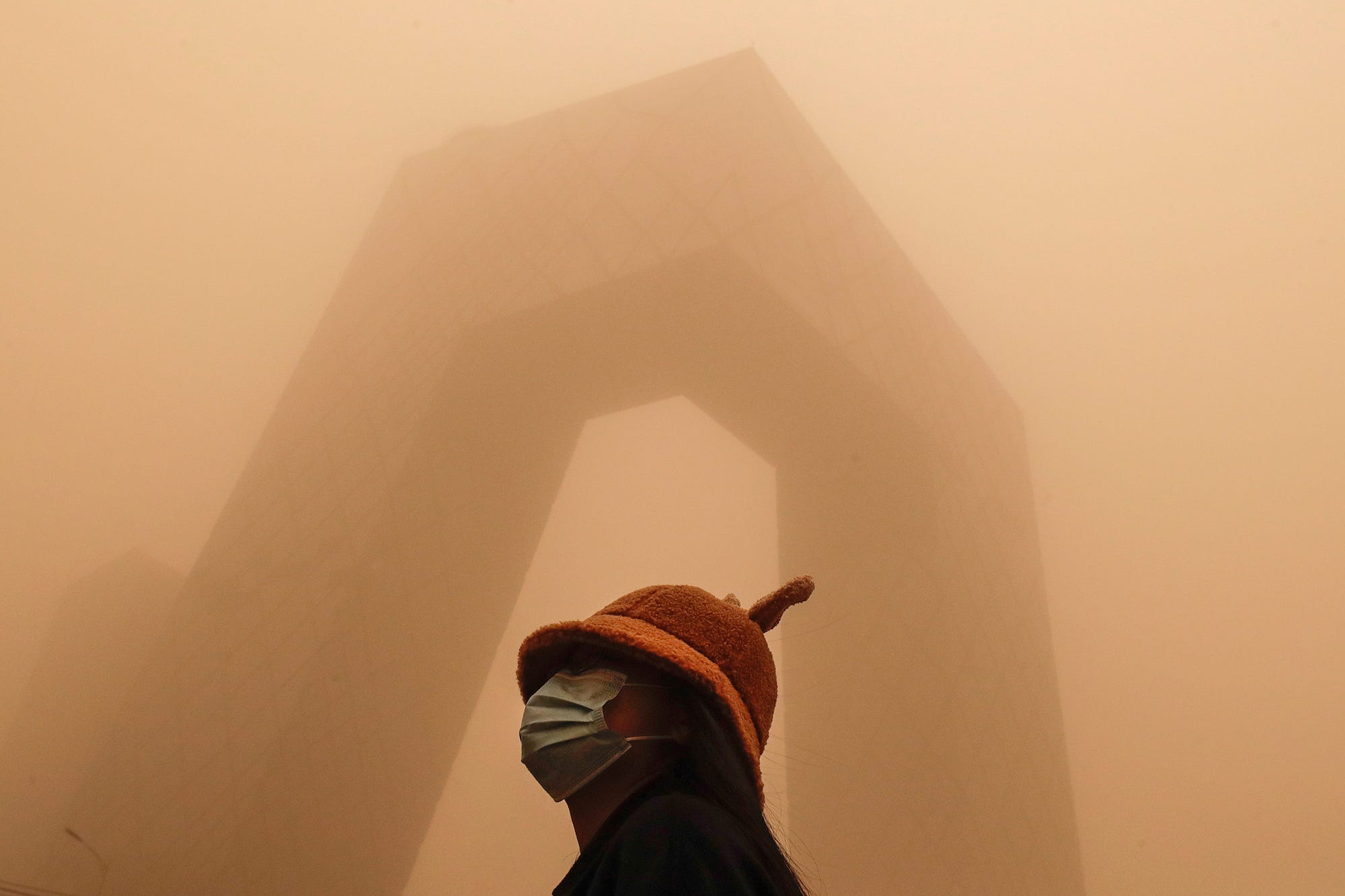
AP Photo/Andy Wong
Flora Zou, who lives in Beijing, told Reuters: "It looks like the end of the world."
"In this kind of weather I really, really don't want to be outside," she said.
Sandstorms typically occur in Beijing at this time of year.
But the China Meteorological Administration called this one the biggest in a decade, Reuters reported.
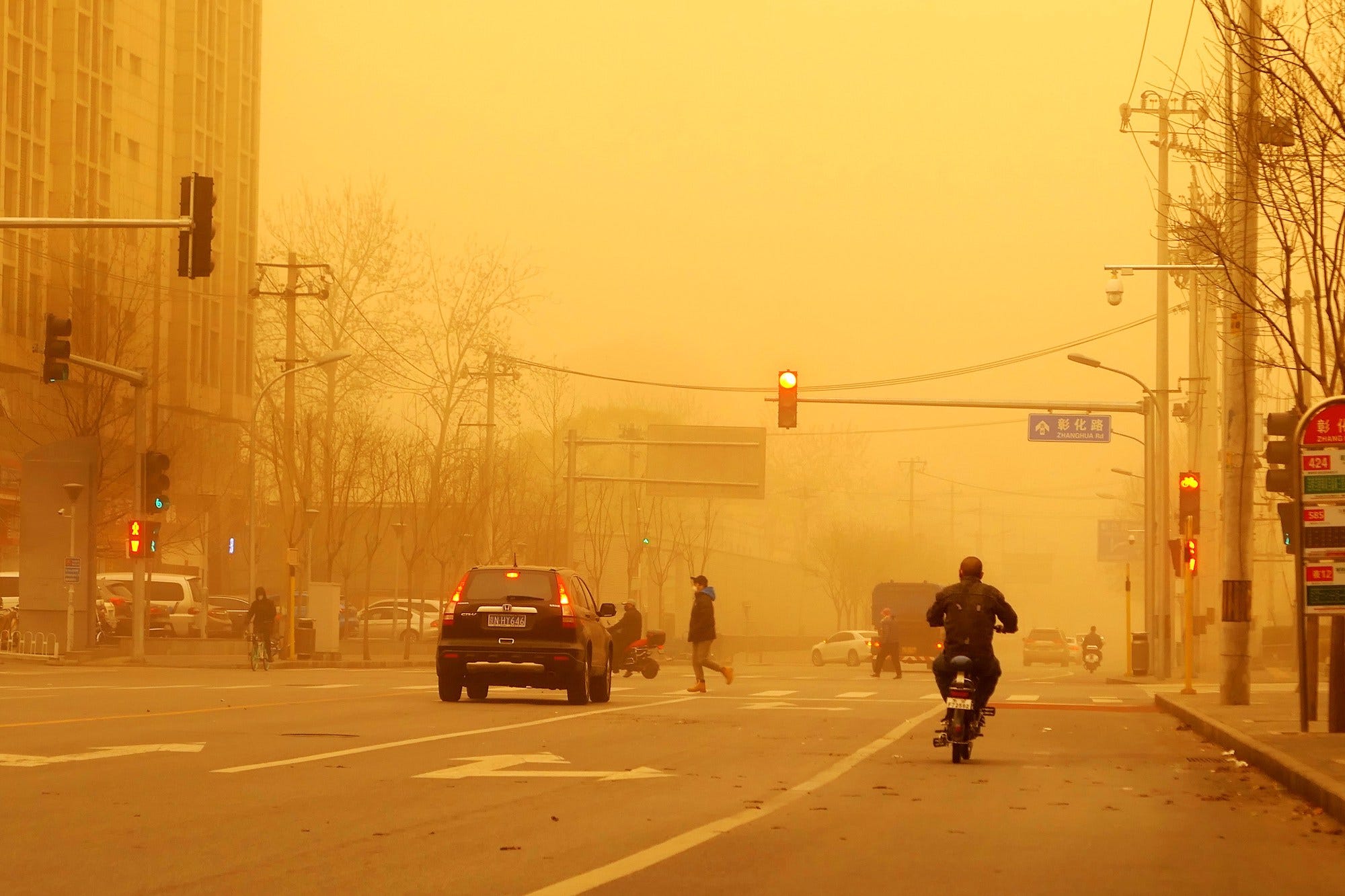
Costfoto/Barcroft Media via Getty Images
The Guardian reported that levels of PM2.5 air pollution particles were above 600 micrograms in some parts of the city.
The particles can get into the lungs, and the World Health Organization recommends average daily concentrations of just 25.
The WHO says that the particles "can penetrate the lung barrier and enter the blood system" and that "chronic exposure to particles contributes to the risk of developing cardiovascular and respiratory diseases, as well as of lung cancer."
Reuters noted that deforestation in China has helped soil erosion, making events like sandstorms worse.
China has been trying to plant more trees to slow this erosion, and to trap sand and dust being blown in from nearby deserts.
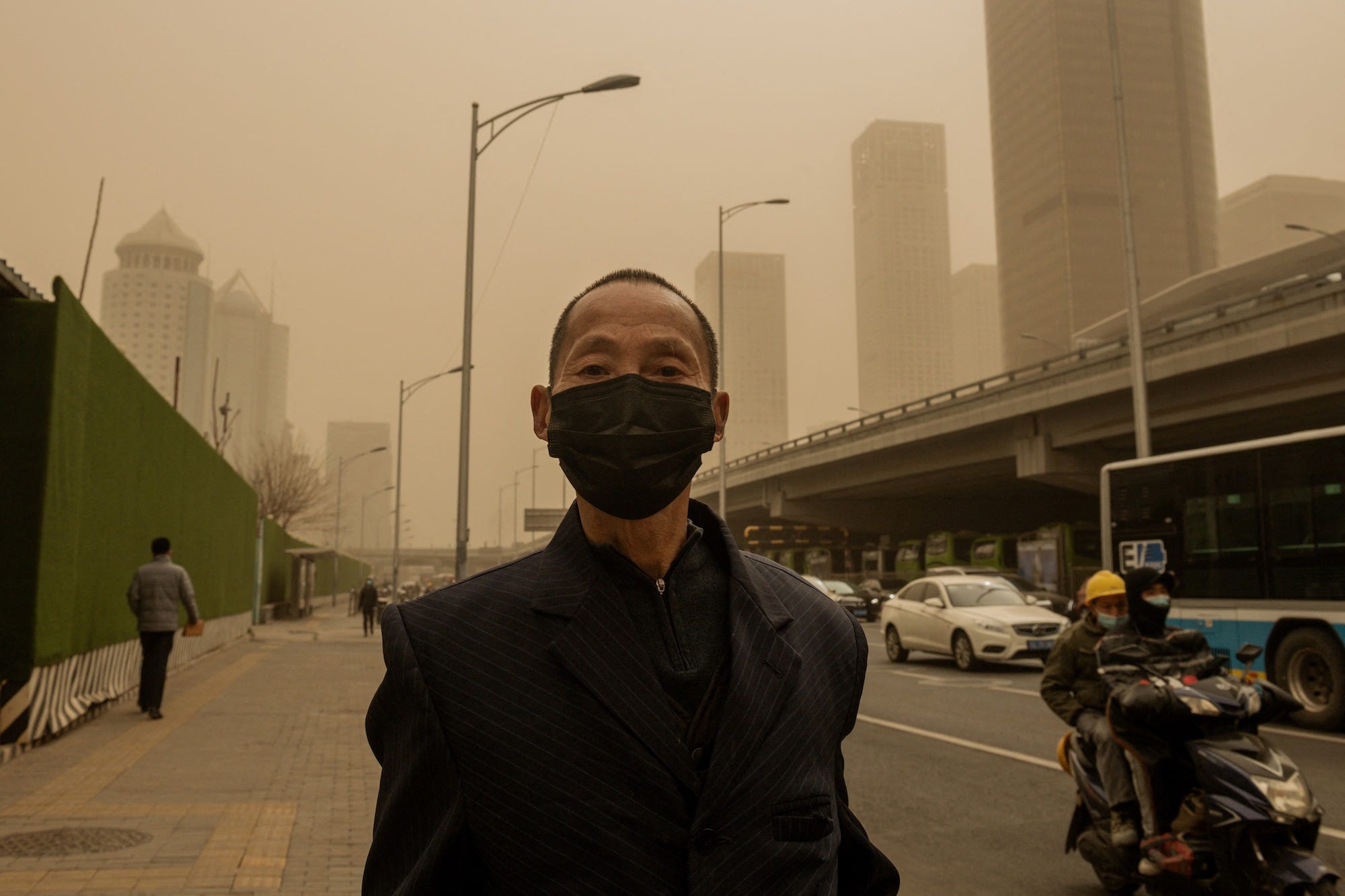
NICOLAS ASFOURI/AFP via Getty Images